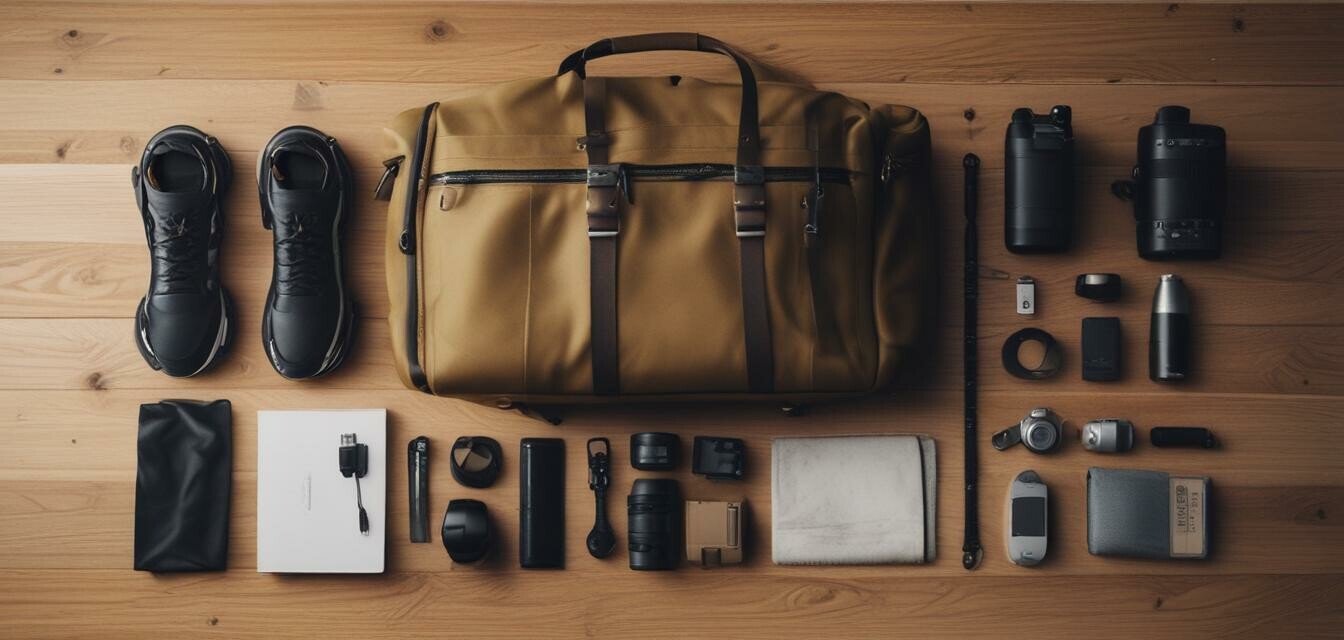
Smart Packing: How to Maximize Space in Your Duffel
Packing efficiently is key to enjoying a stress-free travel experience. Learning how to maximize space in your duffel bag can help you pack more while keeping your items organized. In this article, we will explore innovative techniques and tips to make the most of every inch in your duffel, ensuring a smooth journey ahead.
Key Takeaways
- Roll clothes to save space and reduce wrinkles.
- Use packing cubes for organization and easy access.
- Fill shoes and gaps with smaller items.
- Keep essentials accessible with quick pockets.
- Choose lightweight, compressible packing materials.
Understanding the importance of smart packing
Smart packing is not just about fitting everything into your bag; it’s about doing so effectively to maintain ease of access and organization. Here are some reasons why maximizing space matters:
- Reduces stress when searching for items.
- Helps avoid excess baggage fees.
- Allows for easy maneuvering through crowded airports.
Top strategies for maximizing space
Here are some practical techniques to help you pack your duffel bag efficiently:
1. Roll, don’t fold
One of the best ways to save space is by rolling your clothing instead of folding it. Rolling not only reduces the amount of space used but also helps minimize wrinkles. Here’s how:
- Lay the item flat on a surface.
- Start rolling from one end to the other.
- Secure with a rubber band or keep it rolled with a packing cube.
2. Use packing cubes
Packing cubes allow you to compress clothing and keep items organized in your duffel. Consider categorizing items:
- Bottoms in one cube
- Tops in another
- Accessories in a smaller cube
This method not only maximizes space but keeps your packing efficient.
3. Fill empty spaces
Utilize every inch of your duffel by filling in empty spaces:
- Stuff shoes with socks, belts, or small items.
- Fill gaps between cubes with rolled items or smaller accessories.
4. Keep essentials accessible
Designate a pocket for essentials that you might need while traveling, such as:
- Travel documents
- Snacks
- Chargers and electronics
This way, you won’t have to dig deep into your duffel when you need something urgently.
5. Choose lightweight materials
Select clothing and travel gear made from lightweight fabrics that compress easily. They take less space and can often be dried quickly, which is perfect for traveling. Always keep in mind the volume of each item when packing.
Smart packing examples
Here are some example layouts for packing a duffel bag:
| Item | Standard Packing | Smart Packing |
|---|---|---|
| Clothing | Folded, takes more space | Rolled, saves more space |
| Shoes | Packed separately | Filled with small items |
| Electronics | Loosely placed | In designated pockets |
| Accessories | Scattered | Organized in packing cubes |
Additional tips and tricks
Here are some final tips to help you refine your packing technique:
Beginners’ packing tips
- Make a packing list to avoid forgetting essentials.
- Consider the weather of your destination and pack accordingly.
- Avoid overpacking by laying out all items first and reconsidering the necessity of each one.
- Choose versatile clothing that can be mixed and matched.
Conclusion
Maximizing space in your duffel not only enhances your packing efficiency but also improves your overall travel experience. By implementing the techniques discussed above, you can travel light while ensuring that you have everything you need. Explore our other articles on buying guides, lightweight duffels and packable duffels for more tips and inspiration on minimalist travel gear.
Pros
- Efficient packing saves time and effort.
- Prevents unnecessary stress during travel.
- Helps maintain organization with minimal effort.
Cons
- Requires practice to master the techniques.
- Initial effort may feel cumbersome.

